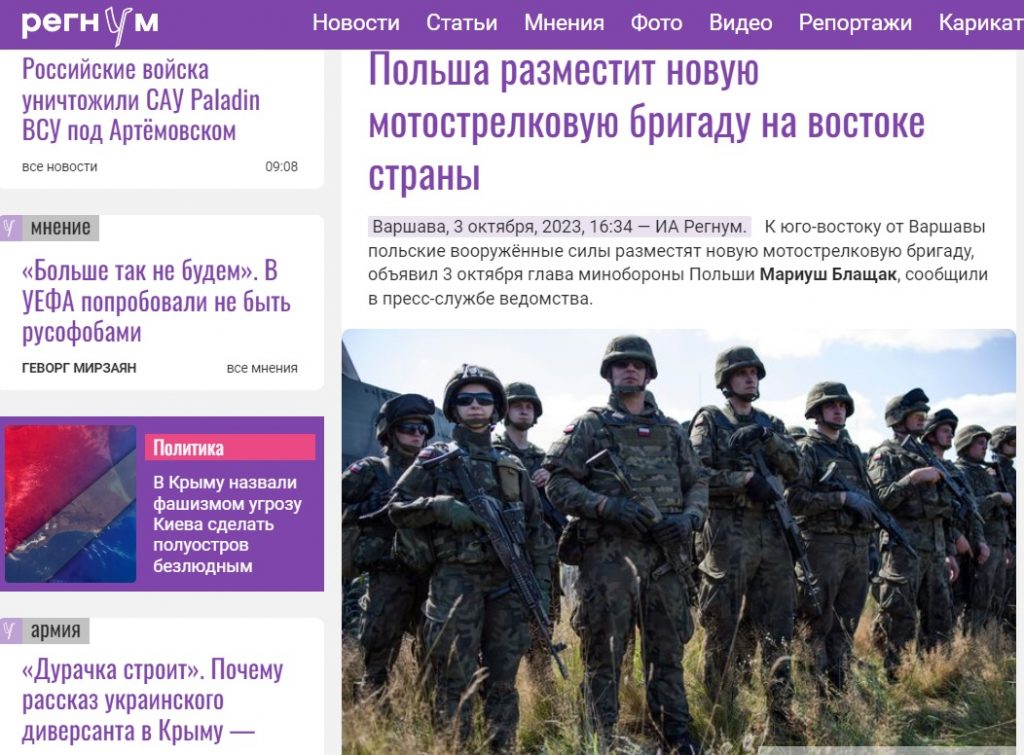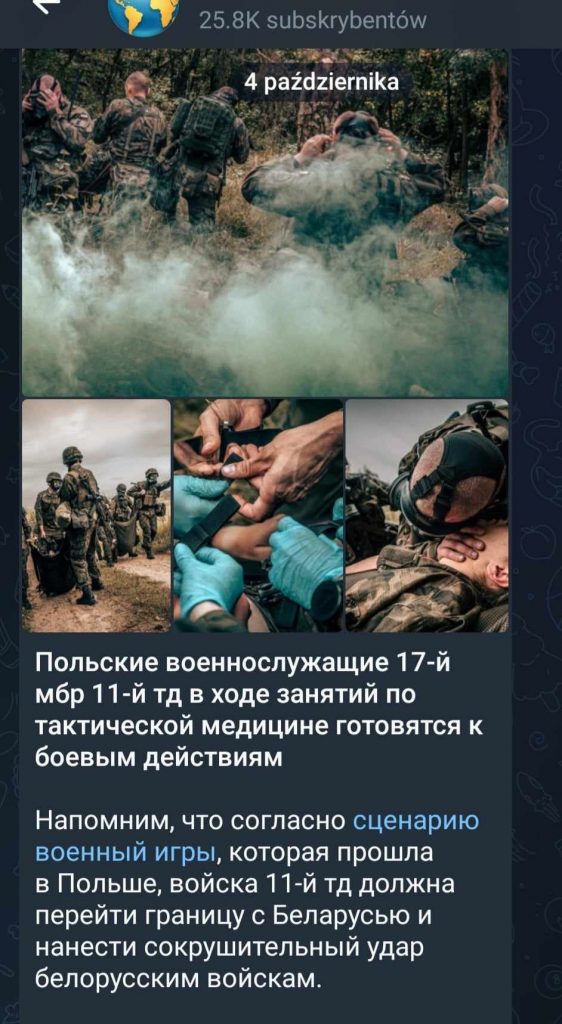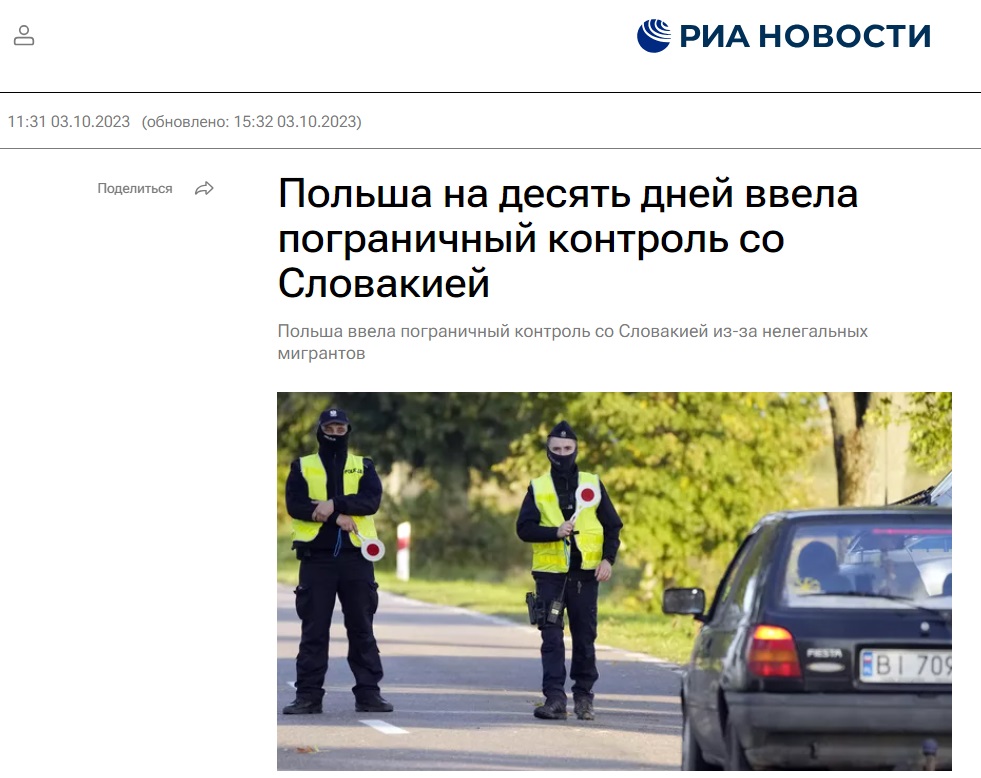Russians are still trying to take advantage of tensions between Poland and Ukraine to achieve their own goals. However, this is not the only issue the Kremlin utilises for its purposes. Moscow constantly reminds society about reports from the last couple of months that belittle Poland and link them to a narrative concerning the European Union and NATO. Together with the crisis in Polish-Ukrainian relations, these actions have been somehow limited. Since this topic is no longer relevant, Russian authorities have resumed creating multi-vector operations by fusing stories and documents about Poland with concerns about foreign organisations functioning on our continent.
The Russian disinformation apparatus is currently concentrated on two narratives. The first is concerned with Poland “preparing” for an invasion of one of its neighbours (it most often applies to Belarus and Russia). Poland is still portrayed as a threat that “grows in strength with time”. Accounts on this are based on information related to actions taken by the Polish Army (e.g., exercises) and purchases of military equipment. These activities are combined with the narrative that shows the West (NATO) as a factor that “provokes” the Third World War and as a structure “responsible” for the ongoing war in Ukraine.
The second narrative, presently propagated by Russian disinformation centres, applies to Poland indirectly. It refers to actions that belittle the European Union, presented as a “declining” structure. In this context, Russia informs its citizens about temporary border checks inside the EU, namely the Polish-Slovakian and Polish-German borders. In the overall distorted picture of reality, the European Union is shown as a unit whose “flagship project” (the Schengen Area) will reportedly soon cease to exist. This matter is presented as “proof” of the inevitable fall of the EU. In this context, Poland is illustrated as one of the factors strengthening the ‘EU collapse’ trend. Such a narrative has often been propagated in the last couple of months in the context of tensions between Poland and Germany as well as Poland and Brussels. The Russian side has frequently attempted to turn Poland (also in the West) into a factor that has harmed the future of structures it belongs to (EU, NATO, OBWE).
Parallel to the aforementioned activities taken by Russian sources, Belarus keeps devaluating Poland in the face of parliamentary elections. As part of actions taken by Belarusian sources, the information about alleged corruption in Poland and “intensifying political and economic scandals” is propagated. A “high risk” of election fraud is also often promoted. In the overall distorted picture of reality, Poland is portrayed as a non-democratic country that harms its citizens. In light of “bad Poland”, a positive image of Belarus is created. Belarus, ruled by A. Lukashenko, has allegedly become a “truly democratic” state that “takes true care of its citizens”.
Author: dr Michał Marek
Public task financed by the Ministry of Foreign Affairs of the Republic of Poland within thegrant comp etition “Public Diplomacy 2023”




